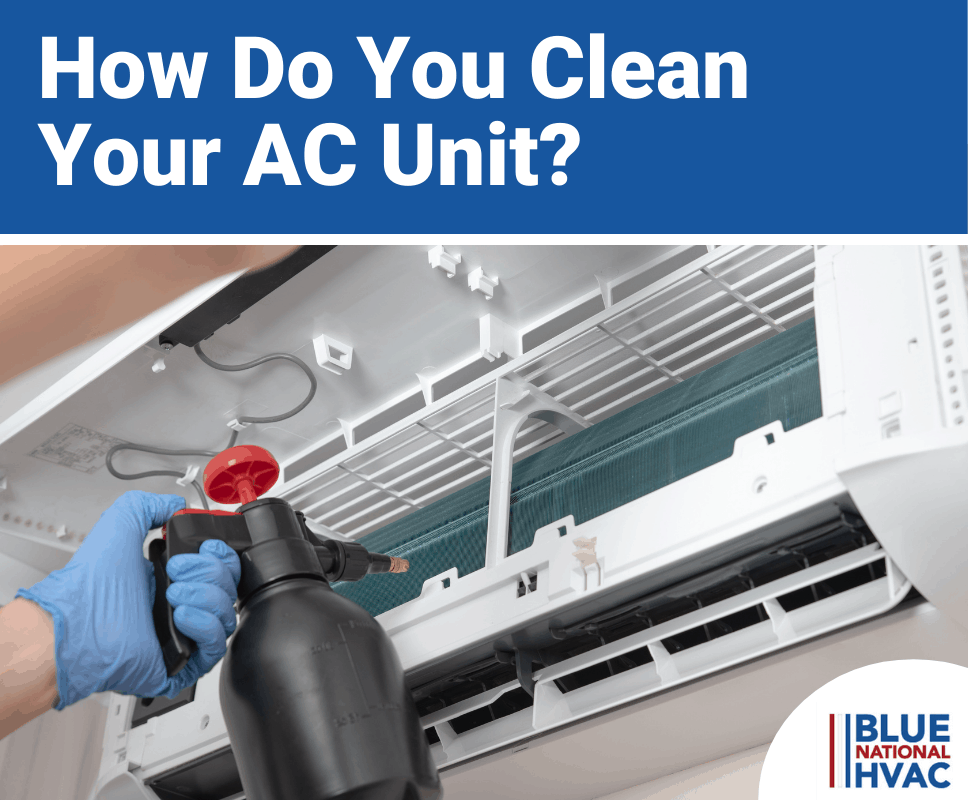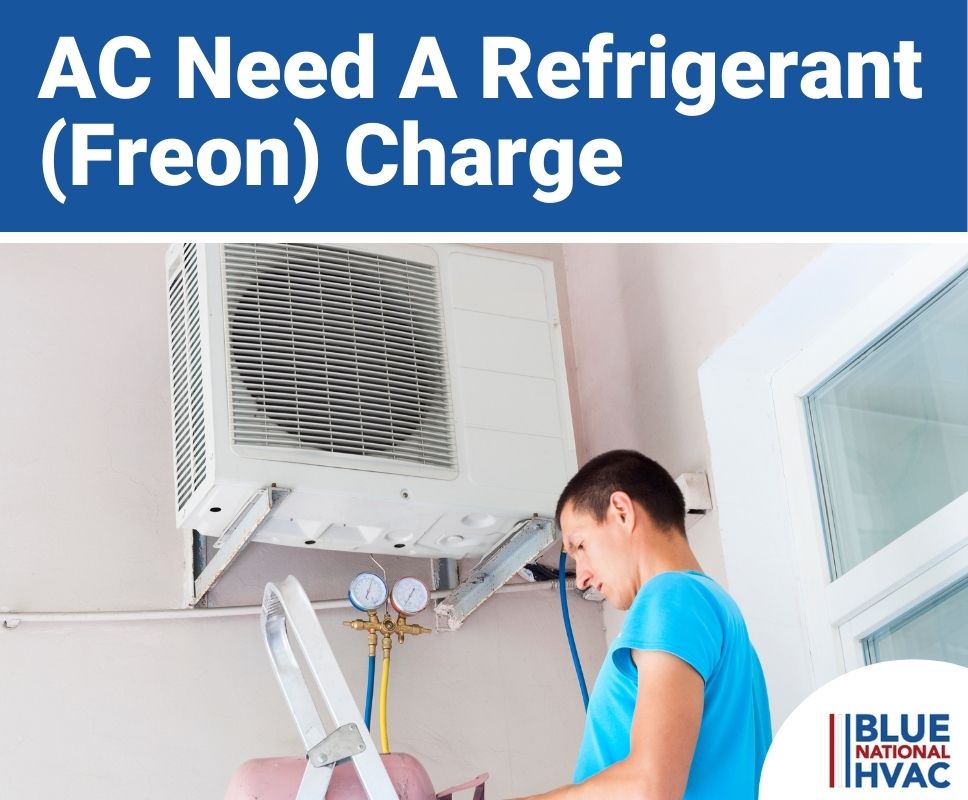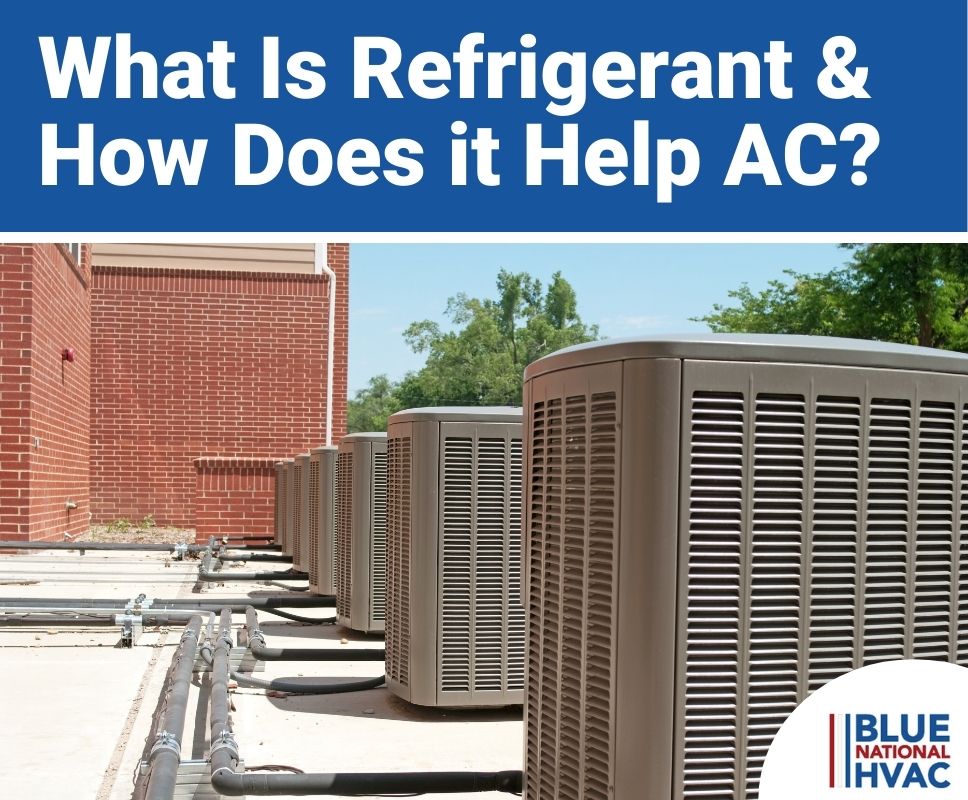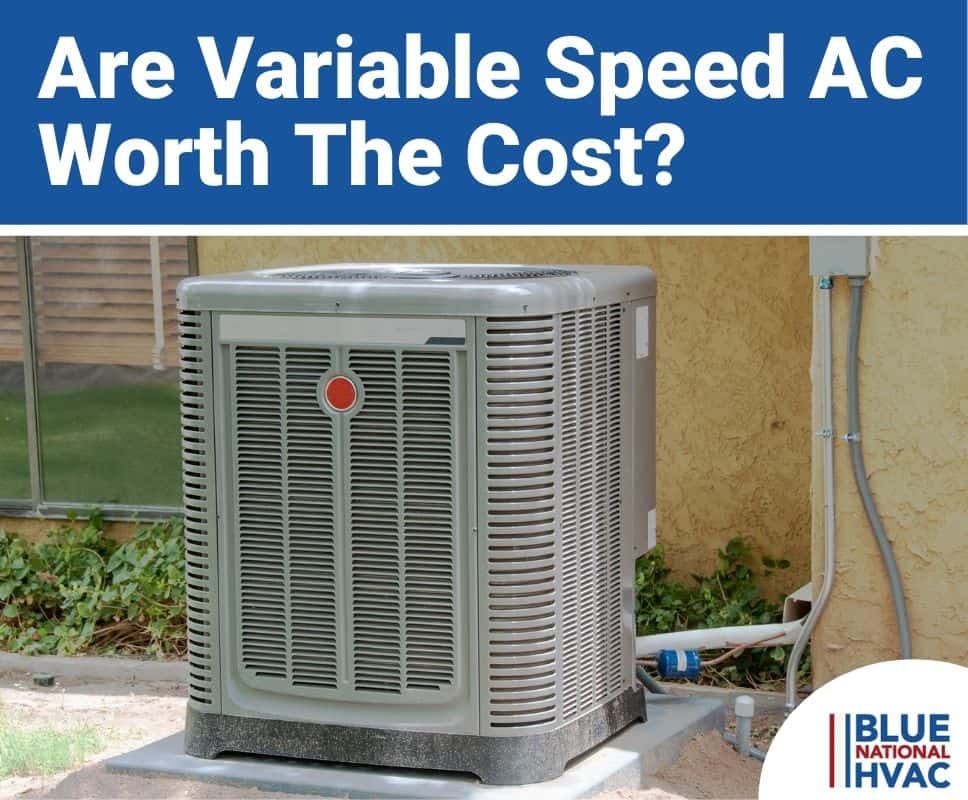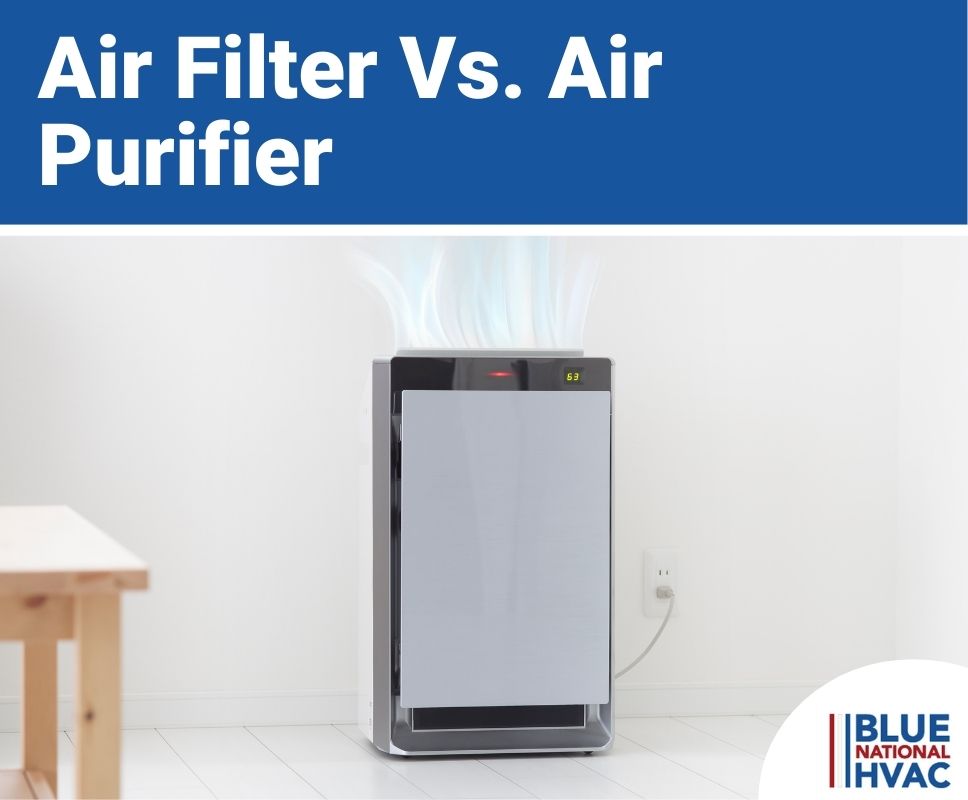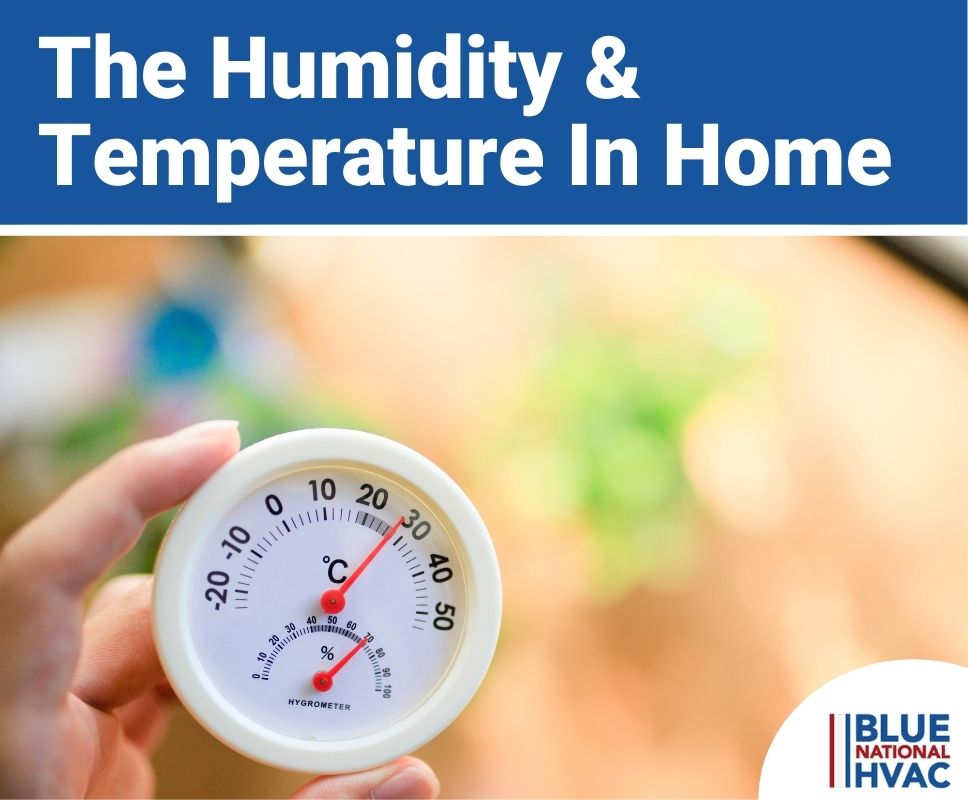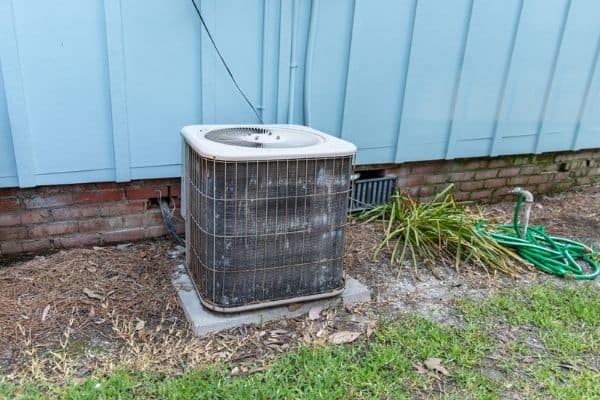And so much more!
So, if you’re looking to learn how to clean an air conditioner with easy DIY steps, keep reading our detailed guide below to get answers to all of your questions!
How Do You Clean an Air Conditioner?
Cleaning your air conditioner can sound like a complicated process. With all the different components, filters, and types of AC units, there are many different components that can get dirty.
However, once you learn how to clean each core component of an air conditioner, you’ll understand how to keep the entire unit clean in the future. The issue is, all AC units are different (central air conditioners, ductless mini-split heat pumps, window AC units, etc.).
As a result, each different type of AC unit has component pieces that require you to access them differently.
Get your elbow grease ready, we’re about to dive in and learn how exactly to clean every part of your air conditioner!
Cleaning AC Filters
Your HVAC filter is designed to collect dust, pathogens, mold, mildew, and other grime that flows through your ductwork.
Without an air conditioner filter, your home would have a constant layer of dust and would constantly recirculate bacteria, mold, and germs too. Obviously, more pathogens in the air can lead to more illnesses for homeowners and their families.
First things first, you’ll want to turn your air conditioner off before you take out the filter.
You can either turn the setpoint on your thermostat very high or, even better – turn it completely off with your breaker box or by unplugging it. You don’t want your AC blower turning on and circulating dirty air while you’re cleaning the filter.
To clean your AC filter, you’ll need to remove the filter from whichever type of AC unit you have:
- Central air conditioner
- Air-source heat pump
- Window AC unit
- Ductless mini-split heat pump
- Portable AC unit
The simplest way to locate the filter for your specific unit is by consulting the owner’s manual or by doing a quick search on Youtube.
Once you have the filter out of your air conditioner, inspect it. If it looks dusty, you need to clean it. However, if you have a replaceable filter, it’s best to replace it, especially if it’s been over six months.
To clean the filter, you can use a shop vacuum or the wand of your standard carpet vacuum. And make sure you get both sides of the filter!
If your vacuum cannot remove the dust and grime buildup, you might need to wash it. To do this, you can simply spray it off with water. If that doesn’t help, submerge it in a sink full of a 1:1 ratio of water and vinegar for 1.5 hours to loosen up the dirt.
After that, rinse it off with water and let it dry completely before placing it back into your air conditioner.
While you’re washing your air filter, be sure to look out for holes or tears, these are signs your filter definitely needs to be replaced. Holes and tears will let dust and particles pass freely through your filter, rendering it useless.
Note: using liquids to wash a filter that is intended to be thrown out and replaced won’t work so make sure you consult Youtube or your owner’s manual to learn the proper cleaning procedure for your exact unit.
How to Clean the Air Conditioner’s Evaporator Coils
The evaporator coils are tightly spaced honeycomb cooling fins that air blows across to transfer heat from the air to the refrigerant inside it. Your AC filter protects the evaporator AC coils from getting soiled with dirt and debris.
However, after many months to years of operation, the evaporator coil will eventually get soiled too. If you don’t replace or clean your filter often enough, the evaporator coils will get dirty faster.
Dirt on the evaporator coils is an issue because it prevents efficient heat transfer from the air. To avoid this problem, you should clean the evaporator coils around approximately once per year.
Much like the air filter, you can clean the coils with a vacuum with a brush attachment to get all the dust and dirt off of them.
How to Clean the Condenser Coils of an AC Unit
The condenser coils of a central AC unit are on the outdoor unit of your air conditioner (commonly known as “the condenser” or the “outside unit”). Much like the evaporator coils, the condenser AC coils are honeycomb-like structures that can get clogged with dirt and debris.
To clean the condenser, or outdoor unit, make sure to shut off the power by turning it off at the fusebox. You can vacuum the condenser fins on the top of the condenser and use a soft brush to knock off any dust, grass, or leaves. Be careful not to bash your vacuum against the fins as they can bend, which would then block airflow when you turn the unit back on.
If you want to get an even deeper clean on the condenser, you can remove the top cover with the fan attached. All you have to do is unscrew the top grille with a screwdriver and remove it without unplugging the fan’s electrical connection.
While you have the fan and cover off, inspect it and dislodge any leaves or grass clippings that may be caught in the fan motor.
Now that you have the cover off, you can clean it with some coil cleaner solution, then spray the inside of it with mild pressure from your water hose (don’t use a pressure washer by any means). When the water has washed away all the dirt, and you’re satisfied with the spraying, return the cover to the top and screw it back down.
Wait a full 24 hours before turning the AC unit back on to let it completely dry.
To prevent your condenser unit from getting dirty, remove any plants, branches, and grass at least 2 to 3 feet away from your AC unit.
Fixing the AC Unit’s Coil Fins
As we’ve learned, both evaporator and condenser coils have aluminum fins that the air flows through to transfer heat. These fine aluminum fins can be easily bent, blocking airflow and catching dirt and grime more easily.
You can straighten the bent fins back to the original state with a tool known as a “fin comb.” You probably won’t find this tool at your local hardware store, but an air conditioner wholesaler will definitely have one.
If you’re not comfortable using a fin comb, one of our professional HVAC technicians can help – give us a call! We’ll send an expert over to make sure it is done right.
Condensate Drain Pan and Drain Line Cleaning
It’s entirely normal for your condensate pan to have water in it. Water is removed from the air by your evaporator (in other words, it reduces the humidity). The water from the condensate pan is drained away by the condensate drain line, either directly outside your home or straight into a sump pit.
Even in regular operation, your condensate drain line can get clogged with a combination of dust, rust, mildew, algae, and microbes. Over time, these particulates can build up and coat the inside of the condensate line with a gross, sticky mess that prevents proper draining.
If your condensate drain pan overflows because the drain line gets clogged, your home can suffer water damage. Therefore, you should have your drain line routinely cleaned to prevent buildup and clogs in the first place.
The best way to clean your AC drain line is to use a vacuum, flush it with water from a garden hose, dislodge the clog with a pipe cleaner, or pour a 1:1 mixture of water and vinegar (or bleach) down the drain line.
If you’re unable to unclog your AC drawing line, call one of our HVAC experts and we will be happy to help!
Duct Cleaning Costs
For most homes, duct cleaning is an entirely necessary task that should be done every 4 to 6 years. Cleaning your ductwork might be needed more often if you have many pets that shed a lot.
Pet hair is not the only thing that can build up in ductwork; dust and dirt can clog it as well. All this dirt, dust, and hair is forced into the air you breathe every time your AC unit turns on.
The extent of ductwork cleaning will vary depending on the size of your home, the amount of ductwork, the number of vents, and the amount of dirt in the ducts.
Having your ductwork cleaned will improve the air quality in your home and increase the performance and efficiency of the AC unit. Clogged ductwork blocks the airflow, and your AC unit has to work harder to cool your home.
Ducts are cleaned with specialty vacuums which are much more powerful than your standard household vacuum cleaner. They also have super long hoses that a pliable enough to fit through turns and bends in your ductwork.
Duct vacuums can be rented from hardware stores and sometimes a local HVAC dealer. If you don’t want to deal with the hassle of renting out a unit, give us a call. We’ll gladly come out and give your ductwork the cleaning it needs!
Cleaning the Surface of Your AC Unit
The surface of your air conditioner can be dusted off and wiped down with a moist cloth. With indoor units and components, never submerge them in water or spray them off. Doing so can damage them.
Using a little water on a cotton cloth to wipe away dirt should do the trick. However, you can use a mild solution like water mixed with vinegar or a bit of dish soap for tougher stains.
Why Is Cleaning Your AC System is Important?
Cleaning your air conditioning unit is considered “preventive maintenance.” It not only helps prevent equipment failures, but it also makes your air conditioning system run more efficiently. Efficient operation lowers your electricity costs and provides less wear and tear on the AC unit.
If your AC unit is filled with dirt and grime, it is more likely to break down and cause you unwanted stress. So don’t skimp out on preventive maintenance and cleaning! You’ll stay cool if you remember to keep it clean.
How Often Should You Clean Your Air Conditioner?
Air conditioners are a critical piece of the comfort of your home in the hot summer months. To keep things running smoothly, you will want to perform basic cleaning on your AC unit at least once a year. Ideally, you should schedule this maintenance just before the hot summer months after the winter thaw but before those warm summer days kick in (assuming you live in a seasonal climate).
You should change or clean your filters at least twice per year and clean at max every month to optimize the efficiency of your air conditioner. Doing routine cleaning and filter upkeep will prevent dirt and grime from building up on your coils, which reduces the air conditioner’s efficiency and will cost you more money to operate.
When air conditioners coils are clogged, they have to work harder to keep up with your cooling demands. If the AC unit works too hard, it will cause more wear and tear and reduce the life of your compressor and other components.
More importantly, cleaning will help keep dust, allergens, and other pathogens from infiltrating your home and help prevent you and your family from allergen irritation and airborne infractions. Never skimp out on maintaining your air conditioner.
How Much Does AC Cleaning Cost?
The price of cleaning your air conditioner depends on what components need to be cleaned. If you clean time yourself, the cost is your time and any water and cleaning products you use.
However, if you decide to hire an HVAC professional to clean your AC unit, you can expect to pay somewhere in the following range for cleaning of the following components:
Condensate Drain Pan and Drain Line Cost
AC drain line cleaning typically costs between $50 to $250.
Condenser Coil Cleaning Cost
Condenser coils cleaning costs around $100 on average.
Cost to Clean Evaporator Coils
The average costs for evaporator coil cleaning are $220 to $420.
Duct Cleaning Costs
For average homes, duct cleaning costs between $250 to $500.
Packaged Cleaning and Preventative Maintenance
Many HVAC technicians can provide cleaning and preventative maintenance right before the cooling season as in a flat cost package, ranging from $100 to $500 depending on what’s included.
When Should You Hire A Professional To Clean Your Air Conditioner?
If you’re not comfortable working on your air conditioner to get it cleaned properly, then skip the “DIY” and get in touch with our HVAC professionals.
Whether you have a central air conditioner, air-source heat pump, ductless mini-split system, or just a simple window AC unit, our HVAC experts can get your AC system shiny and clean in a flash!
We can even recommend a routine maintenance schedule so that your air conditioner gets cleaned enough and at the right time. So, give us a call!

